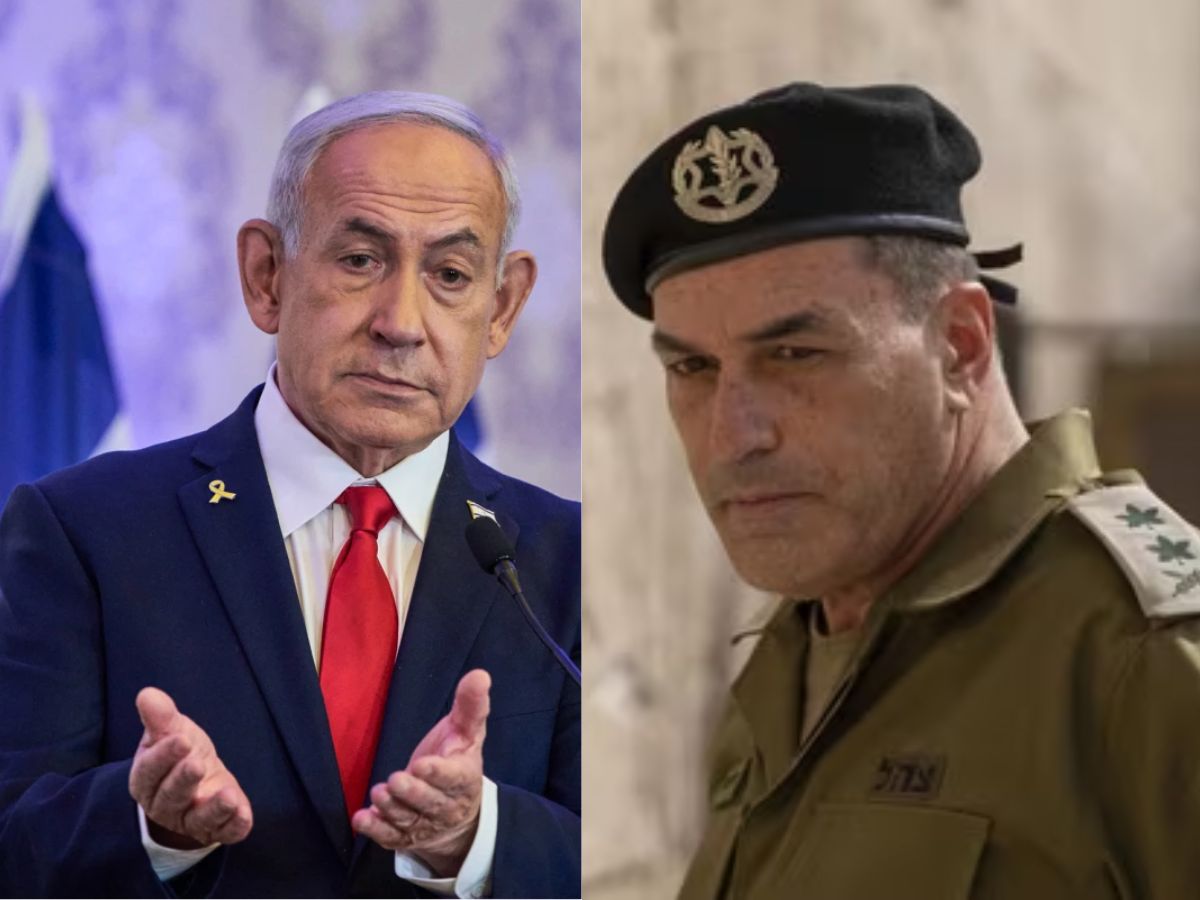As pressure grows from Prime Minister Benjamin Netanyahu’s right-wing allies to fully occupy the Gaza Strip, Israel’s military leadership is signaling resistance to such plans. Chief of Staff Lt. Gen. Eyal Zamir on Monday moved to scale down the army’s operational posture, in what many see as a subtle but direct challenge to political efforts to extend the war and potentially reshape Gaza’s future.
What is the Israeli Army Saying About Full Occupation of Gaza?
While there has been no official statement from the Israel Defense Forces (IDF) on reports suggesting that allies of Netanyahu have threatened Zamir’s position over his opposition to a full occupation, the timing of the army’s announcement has raised eyebrows. Just minutes before those reports surfaced, the military said it was cancelling the wartime emergency order that had extended reserve service for regular soldiers by four months since the October 7 Hamas-led assault.
Also Read: Israels’ Netanyahu Urges Red Cross Aid for Hostages in Gaza As Families Warn Against ‘Expanding War’
The move is widely viewed as Zamir’s answer to increasing political calls for a full occupation of Gaza, a move that would require the deployment of tens of thousands of additional troops. Netanyahu-aligned officials in recent days have publicly declared that “the direction is full occupation,” even hinting that resistance from within the military could be grounds for removal.
IDF to Reduce Active Ground Forces in Gaza
Instead of gearing up for an expanded campaign, the IDF will now reduce its active ground forces. Under the revised plan, each regular battalion will release the equivalent of a company, sending dozens of soldiers back to the reserves. This not only eases the strain on exhausted troops but also suggests the military does not view a total occupation of Gaza as imminent or strategically sound.
The emergency extension order, while initially accepted in the war’s early stages due to urgent operational needs, has come under intense scrutiny in recent weeks. A surge in suicides among both active-duty and reserve soldiers drew criticism from lawmakers and families, with several soldiers even petitioning the High Court to strike it down.
IDF Chief Restructures Forces
In a separate but related move, Zamir also scrapped a controversial policy that forced elite unit soldiers to continue serving beyond their original contract terms. “We’ll face another manpower gap in the coming year because of this decision, which may not begin to close for two years,” the IDF stated.
The military cited mounting security demands, rising inequality among service members, burnout, and “short-term fixes” that were doing more harm than good. “We understand the degree of exhaustion,” the IDF said. “After extensive conversations with troops across units, we identified critical flaws in the new service model. The delay in discharges caused serious damage to the reserves system, disrupted team cohesion, and undermined the transition pipeline between active and reserve duty.”
As part of the restructuring, commanders will be able to offer soldiers extended service voluntarily, rather than making it mandatory.
Tensions Between Israeli Military and Political Leadership
According to Reuters, the military and political leadership remain divided over the future course in Gaza. While Netanyahu’s ministers, including Finance Minister Bezalel Smotrich and National Security Minister Itamar Ben-Gvir, advocate for military rule in Gaza and the re-establishment of Jewish settlements removed two decades ago, the IDF has pushed back throughout the war and is expected to present alternative plans. These may include advancing into parts of Gaza not yet reached by IDF operations.
Israeli Army Radio reported that Lt. Gen. Zamir is growing increasingly frustrated with what he sees as a lack of strategic clarity from the political leadership, concerned that the military is being drawn into a long war of attrition with Hamas.
A spokesperson for the IDF noted that the military is prepared. “We have different ways to fight the terror organization, and that’s what the army does,” said Lieutenant Colonel Nadav Shoshani.
Zubair Amin is a Senior Journalist at NewsX with over seven years of experience in reporting and editorial work. He has written for leading national and international publications, including Foreign Policy Magazine, Al Jazeera, The Economic Times, The Indian Express, The Wire, Article 14, Mongabay, News9, among others. His primary focus is on international affairs, with a strong interest in US politics and policy. He also writes on West Asia, Indian polity, and constitutional issues. Zubair tweets at zubaiyr.amin







